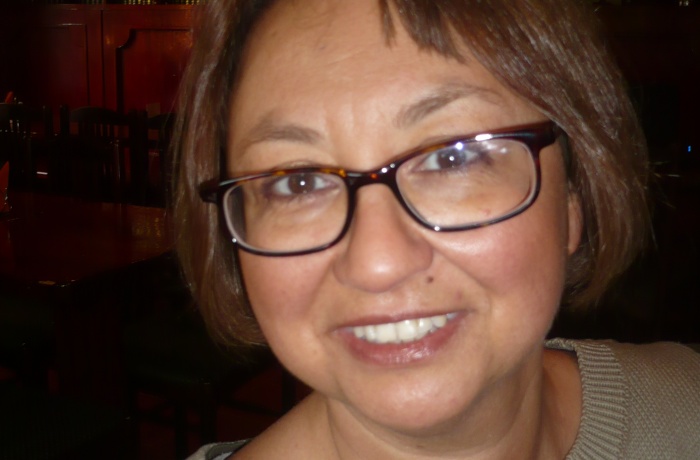
This year, the famous Russian film critic, programming director of Russian ArtDocFest Victoria Belopolskaya is a juror of the DOCU/SHORT competition at the Docudays UA Film Festival.
We asked Victoria about the characteristic features of a film critic’s work, the specific nature of selecting films for documentary film forums, the movies she would present at Docudays UA, and her expectations from the work at the festival.
Screenings of the ARTDOCFEST PRESENTS program will take place in Blue Hall of Cinema House: Theory of Education and Uliyana – March 24, 9 pm; Igrushki – March 25, 9:30 pm; Ballroom Dancer – March 26, 9 pm.
Victoria, you have long been involved with nonfiction cinema. Is it hard to make one’s living by being a documentary film critic?
In the present conditions, film criticism includes festival programming. If we are talking about written film criticism, it surely can’t be one’s professional occupation. But combined with festival programming, it is much more akin to a profession that brings some profit. I can’t say that I suffer more hardship than people who are involved with fiction cinema. But absolutely all the film critics, at least in Russia, live off fiction cinema. For instance, I work for a glossy magazine where I’m responsible for all the topics related to cinema. Documentary criticism is always a marginal activity.
What is more enjoyable – film criticism or festival programming? The latter also implies a certain authority.
I wouldn’t say so. Nowadays festivals are viewed as alternative platforms for releasing quality documentaries, which is fair. If you want to make a thematic or retrospective program, there is always the issue of screening fees, so our authority boils down to control over the festival budget – to what extent we can be in charge of it. As for Russian cinema, the choice is very limited. Of course, some people, particularly on Facebook, can resent the principles of selection, but the range of films you want to show is so small that our power over the minds of our fellow citizens is very dubious.
What are the specific issues involved with being a festival selector?
I work for two nonfiction festivals: Flahertiana in Perm and ArtDocFest in Moscow. The former is an international documentary film festival, the only one in Russia, which has no federal funding and just relies on local money. ArtDocFest, where I work as a programming director, is a festival of Russian language documentaries, so the range of films is initially narrowed by regulations. At Flahertiana, oddly enough, the most difficult thing is getting hold of films. This festival doesn’t have a lot of ambitions except for one: to showcase the season’s best documentaries to the local audience. But it requires paying a lot of money for screening fees. This festival is held in a country with no documentary industry and no chance for a film to be acquired by two TV channels, and then have a small theatrical release and screenings in dozens of universities. So there is no point in revealing oneself at Flahertiana, and then alsothe question of screening fees arises. Thus, the most difficult thing is acquiring those films, while searching for them is not a problem.
At ArtDocFest, on the other hand, the most important thing is to find a film. Russian language films are shot all over the world, sometimes in the most unexpected ways. For example, in Kyiv I want to show a film made by some Danes about a Russian ballet dancer who lives abroad and has no relation to Russia whatsoever. But you had to discover this film in the first place, which required delving through the festival catalogs of many countries. Or there was a Hungarian guy who made a film about Russian Old Believers during his internship in Argentina – but you had to find out about it somehow! So the work at ArtDocFest requires not only combing catalogs, but also scanning the databases of various film institutes.
Speaking about general conceptual difficulties, we have to find films that are interesting for the public. In my opinion, the main problem of the Moscow Film Festival is that it shows films that don’t appeal to the viewers. I believe the most important thing is to understand your audience. This year Flahertiana sold many tickets and had huge success in the city. A progressive person in Perm is very different from a resident of Moscow. So finding films that will be accepted by the public is crucial.
Let’s talk about Kyiv. Tell us about the films you are going to present at Docudays UA.
My idea was to show the different types of language used by documentary cinema. The film Ballroom Dancer captured a large period of the protagonist’s life, but it is structured as a fiction film. It is a complete story. On the other hand, there is The Theory of Education and Uliyana which is shot through direct involvement in the situation – the director just dug into the little girl’s life and reported it. The former film not only has a narrative structure of fiction cinema, but also a Hollywood-like scale and pictorialism. And the story of Uliyana is very intimate. There is also a Lithuanian film Igrushki which in my opinion exemplifies classic documentary filmmaking, when physical reality is woven into accomplished imagery.
You will also be a jury member. What do you expect from your stay in Kyiv?
I really want to look at your audience. Recent historical events have shown us that the Ukrainians differ from the Russians just like the Swedes differ from the Quechuas. I would like to see how your public watches films, what appeals to it and what doesn’t, what it expects from documentary cinema. The Ukrainians show a completely different level of civic maturity and responsibility compared to the Russians. So I am wondering how that is reflected in their quality as viewers.
Dmytro Desyateryk, The Day – exclusively for Docudays UA